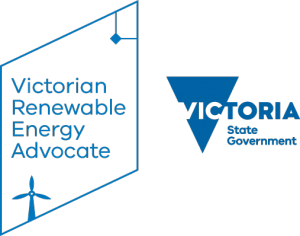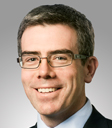|
|
|
15 June 2017 – Day 2
|
| TIME |
AGENDA |
|
|
Australia’s Current Energy Challenges
There is no doubt that the energy sector has some of the most complex and contentious issues. If energy reform is not realized soon enough, the sector will have to answer to serious problems which will impact the whole country’s economy and security.
In the second day of the conference, you will explore the impact of energy insecurity on every single part of the country and how we can prepare ourselves for future energy crisis. The conference will serve as a forum to address the problems of rising energy price and discuss the persistent issues of current pricing mechanism. Join in the conversation and find out how Australia can ensure grid stability, energy affordability, and reduce carbon emission. |
|
| 9:00 |
Conference Introduction
Highlights on Conference Day 2 Key Sessions |
|
| 9:15 |
Victoria’s Renewable Energy Target: Challenges and Opportunities
In June 2016 the Victorian Government committed to renewable energy generation targets of 25 per cent by 2020 and 40 per cent by 2025. In this presentation Victoria’s Renewable Energy Advocate, Simon Corbell, will outline the challenges and opportunities of the VRET policy and the actions government, industry and community will need to take to achieve the targets.
|
|

 |
Simon Corbell
Victoria’s Renewable Energy Advocate
Simon Corbell was appointed as the first Victorian Renewable Energy Advocate in December 2016 to promote the state’s renewable energy sector, provide independent advice to the Victorian Government and assist the state in meeting its renewable energy targets.
Simon was previously Deputy Chief Minister and Minister for Environment and Climate Change of the ACT and served in the ACT Legislative Assembly between 1997 -2016.
In these roles he championed policy which put the ACT on track for 100 per cent renewable energy by 2020, through policies to support large scale solar, wind and battery storage projects.
Simon was a joint winner of the Banksia Foundation’s Gold Award for the ACT Solar Auction program in 2015, and has been recognized by the Clean Energy Council and the Climate Alliance for his work in championing the clean energy transition in Canberra and nationally. He is also a Patron of the Australian Solar Council, Adjunct Professor of the University of Canberra and Associate Honorary Professor at the ANU Energy Change Institute.
|
|
| 10:00 |
Designing a Regulatory Framework to Maintain System Security in a Changing World:
- What system security challenges is the electricity sector facing as the generation mix changes?
- What are the options available to better control and respond to changes in system frequency in the NEM?
|
|


|
Suzanne Falvi
Senior Director, Market Development
Australian Energy Market Commission (AEMC)
Suzanne has a background as an energy regulatory lawyer and in her time at the Commission, has led and been involved with a broad range of rule change requests and reviews involving electricity, gas, networks and retail issues. Before joining the AEMC Suzanne worked as a Senior Policy Advisor for the ACT Government on implementing the National Energy Customer Framework and local renewable energy schemes. Prior to that, Suzanne specialized in competition, consumer protection, administrative law and commercial litigation for Minter Ellison, and worked as corporate counsel for a renewable start-up on intellectual property and energy regulatory issues. She has a Degree in Economics, an Honours Degree in Law and a Masters in International Law from the Australian National University.
|
|
| Morning Refreshments & Networking Session |
| 11:00 |
Will Energy Price Ever Go Down?
- Australia’s energy price trend over the years
- How current energy policies impact electricity prices
- Comparing the cost of maintaining current system versus replacing outdated infrastructure
- How new energy business models such as P2P and sharing economy can bring energy-sufficient and empower Australians
|
|
 |
Timothy Nelson
Chief Economist & General Manager, Sustainability
AGL Energy
Tim leads AGL’s public policy advocacy and sustainability strategy. In 2015/16, Tim has led the development AGL’s Affordability Initiative, AGL’s revised Greenhouse Gas Policy and Strategy and the Powering Australian Renewables Fund (PARF) concept. He is a member of the Westpac Stakeholder Advisory Council and Grattan Institute Energy Reference Group. Tim is an Adjunct Associate Professor at Griffith University and has had around thirty papers published in Australian and international peer-reviewed journals. He has presented at conferences in Australia, Asia and Europe. He holds a PhD in Economics for which he earned a Chancellors Doctoral Research Medal. Tim is also a qualified Chartered Secretary (AGIA and ACIS). |
|
| 11:45

|
Panel Discussion
Affordability – Reliability – Carbon Emission: Impossible Balancing Act?
- Can current policies achieve affordability and reliability while reducing carbon emission?
- Has the current energy pricing architecture failed to bring about efficiency and affordability?
- Should retailers pay the penalty for not acquiring enough renewable energy certificates if current policies fail to reach target?
- What is the role of privately owned distribution companies and retailers in balancing out affordability – reliability – carbon emission?
- How can Australia align its energy policies and pricing system?
Panelists:
- Professor Kenneth Baldwin, Director, ANU Energy Change Institute and ANU Public Policy Fellow
- Kieran Donoghue, General Manager, Policy, Australian Energy Council
- Michael Edward Ottaviano, Managing Director, Carnegie Clean Energy
- Phil Blythe, Managing Director and Co-Founder, GreenSync
- Liam Byrnes, Principal Energy Analyst, Aurizon
|
|
| 12:30 |
Leveraging Smart Meters Data to Support Network Strengthening and Regulation Compliance:
- Healing of GIS database to map the low voltage network thanks to data analytics
- From machine learning to business outcomes: customer satisfaction and reduction of operating expenditures
|
|


|
Louis-Marie Jacquelin
Director
ENEA
Louis-Marie joined the ENEA team in 2009, initially to work on energy and carbon projects and then to participate in the development of the firm. He currently manages the strategy and business development of the firm in Melbourne, develop projects with states, utilities and investors for asset management, renewable energy integration and offgrid systems. He is also responsible for organizing and supervising complex assignments involving multiple partners, including public/private and international partnerships. Louis-Marie has managed and contributed to technology benchmarking and business casing, technology marketing and business development, and the development of energy strategies and new services. During the course of his career, Louis-Marie has worked for utilities, OEMs, national and international public authorities and private investors in Europe, Asia, Africa and Australia. He has been involved in energy projects in Australia since 2014, and is now responsible for developing and maintaining ENEA’s network at executive level across all Australian states and NZ, especially in power distribution and transmission businesses. His fields of expertise are the energy sector (fossil and renewable), specifically dealing with comprehensive issues involving several types of energy (combination and optimization, choice of alternatives) and technical subjects involving the comprehension of the energy system as a whole, as in the case of energy storage. Louis-Marie graduated from the Ecole Polytechnique and continued his education with a Masters Degree in energy resources engineering from the University of Stanford (California).
|
|
| Lunch & Networking |
|
Technology Answers for More Reliable Energy System
Australia’s energy infrastructure is calling for help. Designed more than 20 years ago, the country’s energy infrastructure is now out of touch with the current technology scene. With renewable energy taking up a larger part of the energy mix, Australia energy operators will need to upgrade themselves to address the instability of the new mix is posing to the grid.
In the last section of the conference, you will discover the latest innovations that can tackle the inherent instability issues of renewable energy, explore new technology trends in the industry to fire up efficiency as well as learn best practices from case studies around the world. |
|
| 14:00 |
Technology and Engineering Options for a Secure and Affordable Australian Electricity System
- Australia’s electricity system’s transformation through the large-scale deployment of new and often decentralized demand and supply side of technologies
- Engineering solutions to manage the increase in demand and supply variability at all times and geographic scales
- The challenge of electricity generators, network operators and end-users to select the right approach and solutions to maintain the security, resilience and affordability of Australia’s future energy system.
|
|


|
Alex Wonhas
Managing Director of Energy & Resources
Aurecon
Dr Alex Wonhas has recently joined the Executive Team of Aurecon, a global engineering firm, where he is the global market Managing Director for Energy & Resources. Prior to Aurecon, Alex was the Executive Director with responsibility for Environment, Energy & Resources at CSIRO, Australia’s national research agency. In his role as Executive Director, Alex was instrumental in leading many nationally relevant energy initiatives such as the Future Grid Forum, the Australian National Outlook and the Network Transformation Roadmap. Alex served as an adviser to the 2012 and 2015 Energy White Papers. He was also a Board member of many energy related institutions and companies such as the Australian Solar Institute, the Australian National Low Emissions Coal R&D and Evergen. Prior to CSIRO, Alex worked for McKinsey & Company and advised clients on their energy and resource strategies. Alex holds a PhD in Theoretical Physics from the University of Cambridge.
|
|
| 14:45

|
Case Study: Integrating Energy Storage with Renewable Energy Generation – Genex Kidston Pumped Storage Hydro
- Integration of energy storage with renewable energy generation
- Pumped hydro – low cost, proven technology
- Balancing demand and supply
- Kidston pumped storage project – 1,500 MWh of energy storage integrated with 270 MW solar PV
|
|


|
Simon Kidston
Executive Director
Genex Power
Simon Kidston has an investment banking background with more than 20 years global experience with groups such as Macquarie Bank, HSBC and Helmsec Global Capital. Simon is a co-founder and Executive Director of Genex Power, and has responsibility for project finance and business development. After successfully reaching financial close for the 50MW Kidston Solar Project, he is currently focused on securing funding arrangements with banks and equity partners for the 250MW Kidston Pumped Storage Hydro Project and the 270MW Kidston Solar Project.
|
|
| Afternoon Refreshment & Networking |
| 15:45 |
Achieving Efficiency in the Analytics Age
- How analytics technology revolutionizes grid operations, asset management, and customer service delivery to bring about energy efficiency
- The new economy dynamic of future smart energy system
- Regulatory implications of smart grid
|
|

 |
Matt Coleman
GM Network Solution
GreenSync
Matt is the Head of GreenSync’s Network Business which serves our Transmission, Distribution and Market Operator Clients. Matt has more than 15 years corporate experience in Australia and internationally and has held a variety of senior roles in both tech companies and electric utilities. He is a strategic mind with the ability to lead the development and implementation of innovative solutions to electricity market challenges. In his current role, Matt is helping to pioneer a wide range of new business models and Cloud based services at the grid edge, which is helping to transform the way utilities and customers interact. Matt has forged strong working relationships with wholesale market participants and Transmission and Distribution networks and plays a key role in helping these businesses transition towards the grid of the future. He has an undergraduate degree in economics from the University of Otago and a Masters Degree from the Australian Graduate School of Entrepreneurship. |
|
| 16:30
|
Microgrids: The Future of Energy Stability
- Diversification of energy source and supply is key to building resilience during this time of disruption in the energy sector
- Hybrid systems combining wave, solar, wind, battery storage and diesel via microgrids are the future of energy stability
- Carnegie’s unique business model encompassing the full value chain of design, development, finance, construction, operation and maintenance is supporting innovation and adaptability to keep up with the pace of change
- Case studies: Discussion on some of Carnegie’s key microgrid projects being delivered in conjunction with Carnegie’s subsidiary, Energy Made Clean, and JVA partner Lendlease, to provide unprecedented energy stability
|
|


|
Michael Edward Ottaviano
Managing Director
Carnegie Clean Energy
Dr Ottaviano has been with Carnegie since 2006 and during his time as CEO, Dr Ottaviano has led the Company’s development of its CETO Wave Energy technology from Proof of Concept, through to operation of the only grid – connected wave project in the world. He has been responsible for raising $86million in equity and $56million in Government grant funding. He also drove Carnegie’s recent acquisition of solar/microgrid EPC, Energy Made Clean, making Carnegie the only ASX-listed company with a dedicated renewable energy microgrid project delivery capability and the only microgrid company globally with a wave energy technology.Dr Ottaviano’s previous work has focused on research and development – both in industry and consulting. He has advised companies on new product development, intellectual property, innovation portfolio management and technology commercialization across various industries and ranging from start-ups to publicly-listed companies with market capitalizations in excess of $1 billion. |
|
| 17:15 |
Closing Remarks by Conference Chairman
|
|